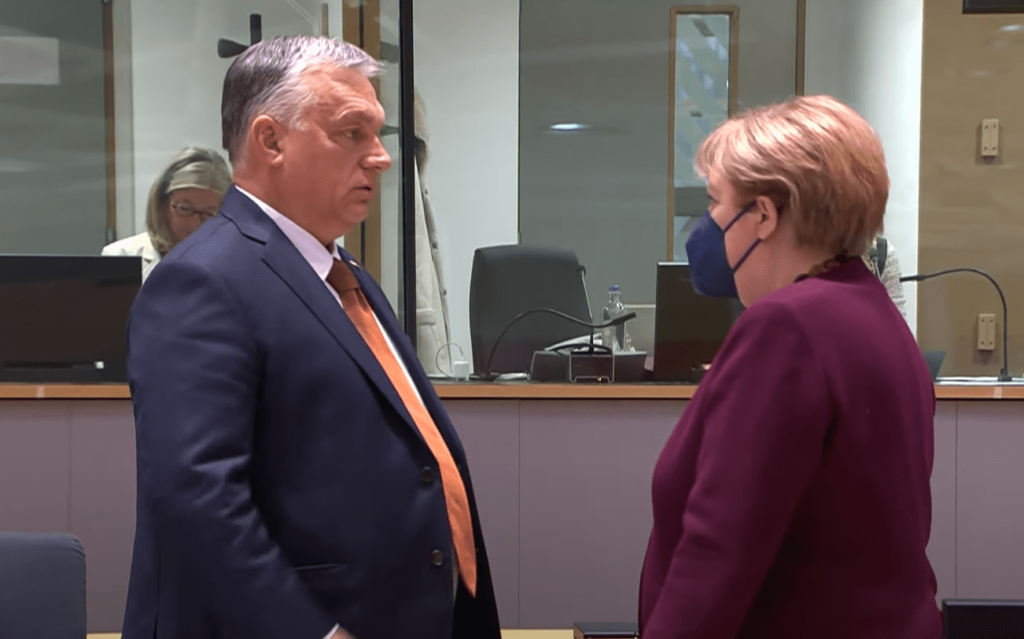Orban: Europe’s Post-Merkel Future

Hungarian Prime Minister Viktor Orban on what it means to lose Angela Merkel:
We understood her, she understood us. Soviet invasion, communist dictatorship, resistance and people’s movements in 1988-89, victory, freedom, reunification and the founder of the new state, Helmut Kohl, the chancellor.
As prime minister of Hungary in 1998, I had the opportunity to serve in office for a few months at the same time as Chancellor Helmut Kohl, a dear, old friend, a Christian brother and a loyal patron of the peoples of Central Europe.
For years, Merkel and I had to endure together the hardships of being in opposition. First, she became chancellor, then we returned to power five years later. We managed the financial crisis in 2010, we were partners in the fight to keep the European Union together, and together we watched helplessly and without recourse the European tragedy of the outbreak of the Russian-Ukrainian war.
The loyal and disciplined Germans, the rebellious and reckless Hungarians, stood together for a common goal: a Europe in which all nations can feel at home.
And then the rupture, or rather fracture, open fracture of 2015, the migratory invasion. The kind of injury from which the athlete’s movement will no longer be what it once was. He rehabilitates, he tries, he struggles, but more out of honor. He knows, and after a while he admits, he can’t get his old form back.
The migration crisis was a major test in itself. It became a Rubicon because it exposed the deep philosophical, political and emotional differences between us about the concept of nations, about freedom and about the role of Germany.
It revealed that for Hungarians and other Central Europeans, the homeland is essential. The nation is the origin, without patriotism there can be no healthy emotional life. It turns out that Germans are on the other path of European civilization, towards a kind of post-Christian and post-national state.
We Hungarians have understood that the Germans do not consider this a problem. They do not consider this a civilizational disease to be remedied, but a natural, even desirable, and even morally superior outcome. The fabric of European unity was unravelling, and there was no stopping it. Migration, gender, a federalized European Union, the dehumanization of Europe. Restoring European cooperation will require superhuman efforts in the post-secular era.
Did Angela Merkel open the door to trouble? Or, on the contrary, did she try to stand firm, but the pressure from the left pushed her aside? Today we do not yet know the answer to this question. Looking at the new, left-wing German government’s pro-immigration, pro-gender, federalist, pro-German Europe agenda, both answers to the Merkel mystery are possible. Time will tell. My only regret, as a former fellow fighter, is that her life’s work and 16 years as Chancellor have not even given us, her colleagues, the answers. One thing is for sure: the era of ambiguity, stealth politics and drifting has ended with Merkel. We now prepare for battle with our eyes wide open.
“We now prepare for battle with our eyes wide open.” I have praised Viktor Orban for being far more awake, in this sense, to the actual stakes of the battles before us, both in Europe and in the United States, than most US conservative politicians. He understands that we are fighting a battle for the future of our civilization — that is, over whether or not we are going to have a future. This missive from him is further clarification of that fact.
One of my friends who emigrated to the US from the Soviet bloc seeking freedom, and who was a source of mine for Live Not By Lies, told me this week that Europe has entered a decade like the 1930s, and to expect great tumult. He no longer feels safe and secure in America, but said a big and important difference between his adopted home and his native country is that we, thank God, have the Second Amendment.